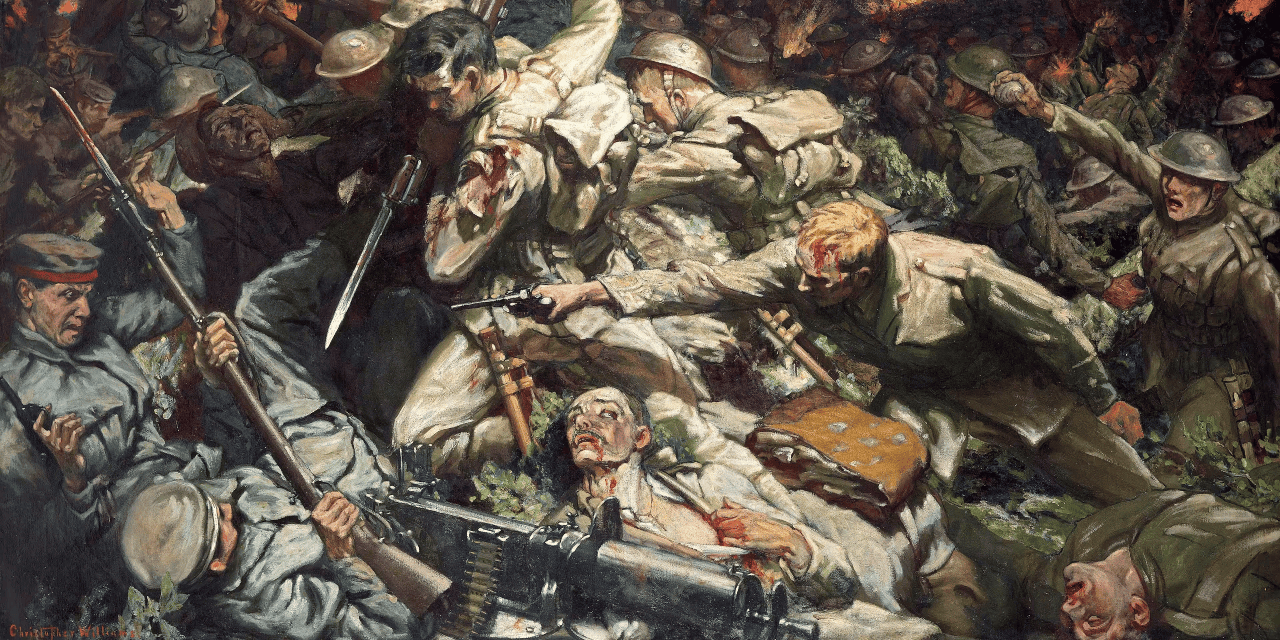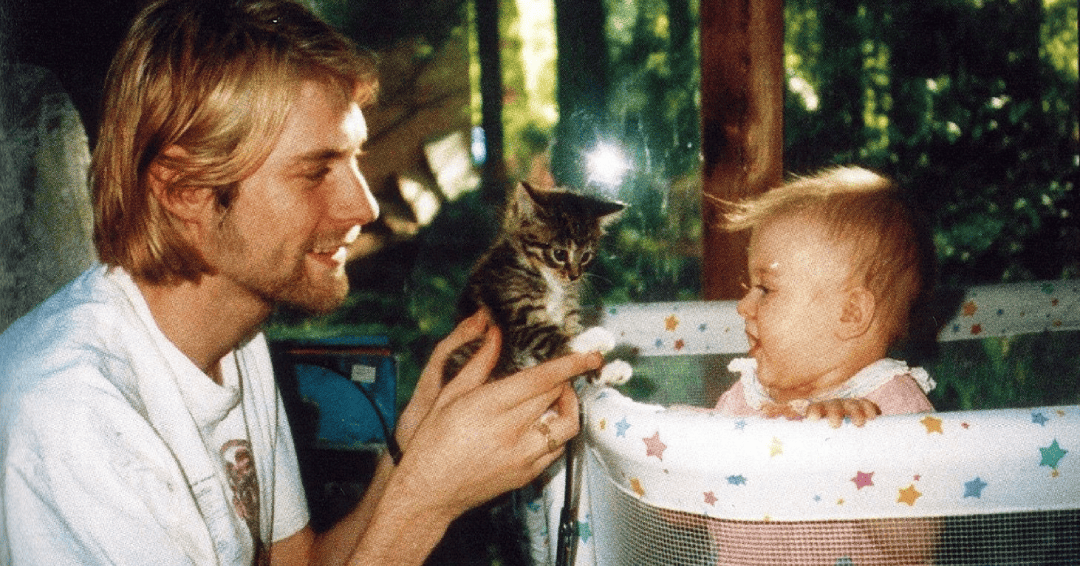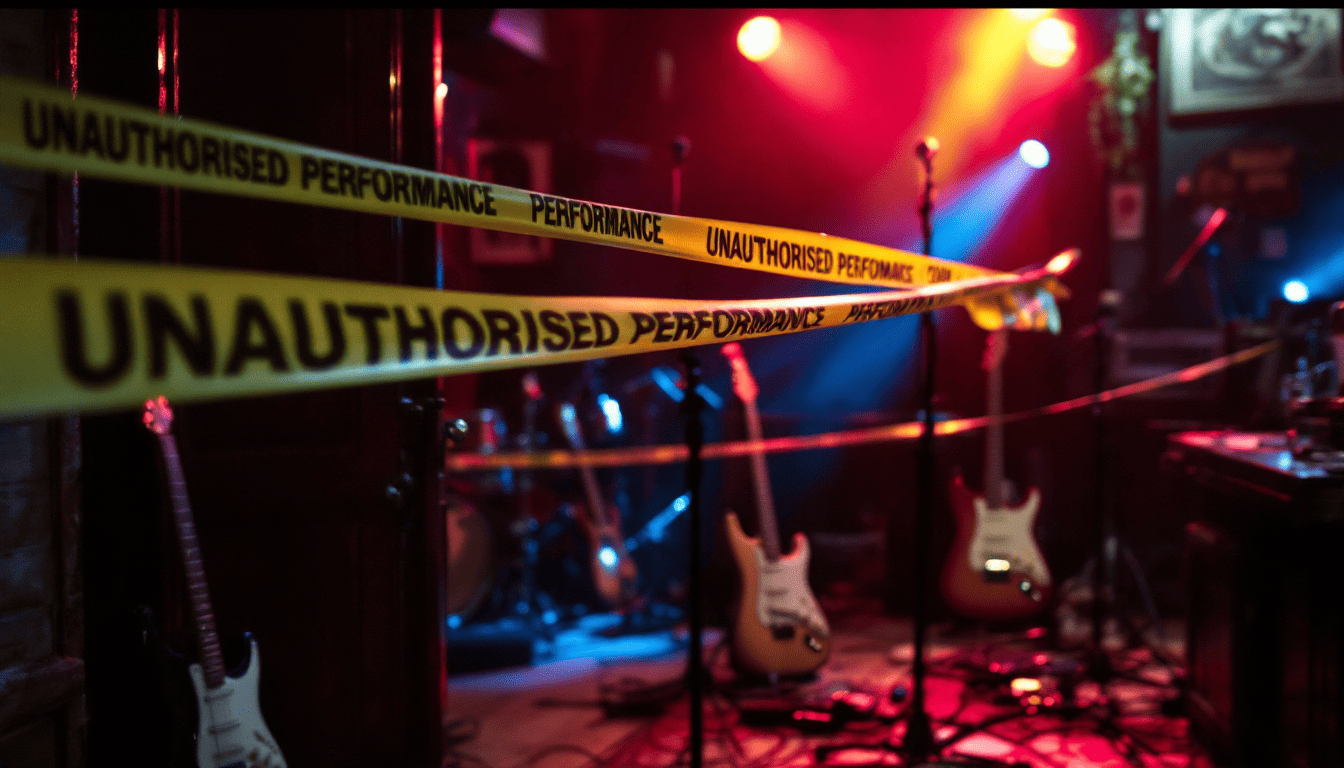11:11 When The Guns Fell Silent
Boys of twelve drowned in gas at Ypres. Sixty thousand fell on the Somme's first day. They deserve remembrance through truth, not comfort—the rats, the rotting feet, the intimate horror of bayonet work. We dishonour the dead when we sanitize their sacrifice into something palatable.

At eleven o'clock on the eleventh day of the eleventh month of 1918, the guns stopped. After four years, three months, and seven days of industrialised slaughter, an eerie silence descended across the Western Front. Men who had grown accustomed to the endless percussion of artillery—the sound had become their heartbeat—suddenly heard birdsong. Some wept. Others simply stood in their trenches, too exhausted for emotion, their faces blank as those of the corpses rotting in No Man's Land.
But the silence came too late for millions.
This is not a sanitised history. This is not a comfortable remembrance. This is about boys—and they were boys, some lying about their age at fourteen or fifteen—who were fed into the machinery of modern warfare and emerged as ghosts, if they emerged at all. On the first day of the Somme offensive alone, 1st July 1916, nearly 60,000 British soldiers became casualties before the sun set. Twenty thousand died. Their bodies carpeted the battlefield so thickly in some sectors a man could walk across them without touching earth.
We owe them the truth, however brutal.
The Recruitment of Children
Private George Maher lied about his age to enlist. He was thirteen years old when he arrived in France in 1915, though his service record claimed he was nineteen. Reginald Battersby joined at fourteen. Sidney Lewis was twelve—twelve years old—when he fought at the Somme. The recruiting sergeants knew. Of course they knew. A child's face cannot hide its youth, no matter how the boy squares his shoulders or deepens his voice. But the meat grinder demanded feeding, and consciences were luxuries Britain could ill afford.
These children found themselves in a hell beyond imagination. The trenches stretched for 475 miles from the North Sea to the Swiss border, a suppurating wound carved into the earth. In places the opposing lines sat so close together men could hear the enemy talking, singing, coughing in the night. A hundred yards. Fifty yards. Sometimes less. Between them lay No Man's Land, a moonscape of shell craters, barbed wire, and decomposing bodies.
Private Battersby, at fourteen, would have been expected to go "over the top" when his officers blew their whistles. Expected to climb out of his trench into a wall of machine-gun fire. Expected to cross ground his own artillery had turned into a quagmire of mud and body parts. Expected to somehow reach the enemy trench, jump down into it, and fight grown men with his bayonet in close, desperate combat.
Most boys never made it halfway across.
Gas! Gas! Quick, Boys!
Wilfred Owen's words echo down through the decades:
Gas! GAS! Quick, boys!—An ecstasy of fumbling
Fitting the clumsy helmets just in time,
But someone still was yelling out and stumbling
And flound'ring like a man in fire or lime.—
Dim through the misty panes and thick green light,
As under a green sea, I saw him drowning.
The first large-scale chlorine gas attack came at Ypres in April 1915. French colonial troops saw a yellow-green cloud rolling towards them across the cratered earth. They had no idea what it was. Then it reached them, and they began to suffocate. Chlorine gas destroys the respiratory organs. It turns the lungs to fluid. Men drowned on dry land, their faces turning blue-black as they thrashed and choked, clawing at their throats.
The Germans had opened Pandora's box. Britain and France responded in kind. Then came phosgene, more deadly still. Then mustard gas, which didn't kill quickly but instead burned away skin, blinded men, filled their lungs with pus. Soldiers who survived gas attacks often lived the rest of their lives as invalids, struggling for every breath, their lungs forever scarred.
The gas masks were crude, especially in the early years. Heavy rubber contraptions with glass eyepieces that fogged up, making vision nearly impossible. When the alarm sounded—a sentry banging on a shell casing, shouting "Gas! Gas!"—men had perhaps fifteen seconds to get their masks on. Fifteen seconds while terror flooded through them. Fifteen seconds of fumbling with straps and filters.
Some were too slow. Owen watched a man die in front of him, unable to get his mask on in time:
In all my dreams before my helpless sight,
He plunges at me, guttering, choking, drowning.
The man's face haunted Owen until the poet himself was killed, one week before the Armistice.
The Somme: The Blackest Day
The Battle of the Somme was supposed to break the stalemate. General Haig assured the politicians back in London it would work. A week-long artillery bombardment would destroy the German trenches, cut the barbed wire, kill the enemy soldiers cowering in their dugouts. Then British troops would simply walk across No Man's Land and occupy the German positions. It would be, Haig promised, straightforward.
He was catastrophically wrong.
The bombardment did alert the Germans to the coming attack. It cratered the ground so thoroughly advancing troops would have to struggle through a maze of shell holes. And crucially, it failed to cut the barbed wire in many sectors. Worse, many shells were duds. The German soldiers, far from being killed in their trenches, had retreated into deep dugouts—concrete-reinforced shelters thirty feet below ground. They waited out the bombardment in relative safety, their machine guns carefully maintained and ready.
At 7:30 on the morning of 1st July 1916, whistles blew along the British lines. Officers climbed out first. Then the men followed. Some units had been ordered to walk, not run, across No Man's Land. Walk. In straight lines. Laden with sixty pounds of equipment.
The German machine-gunners could scarcely believe their eyes. They set up their weapons in the shell-pounded ruins of their trenches and opened fire. At some points the fire was so intense, so sustained, it sounded like cloth tearing—just one continuous ripping sound as bullets streamed across the killing ground at 600 rounds per minute.
Men fell in waves. The first wave was cut down within minutes. The second wave climbed over their bodies and died. The third wave advanced into a carpet of British dead and wounded, and joined them. Some units lost 90 per cent of their men before anyone reached the German wire, where they found it uncut, impenetrable. They died tangled in it, hanging like scarecrows, while machine-gun bullets riddled their bodies.
Private Albert McMillan of the King's Own Scottish Borderers wrote:
I could see away to my left and right, long lines of men. Then I heard the 'patter, patter' of machine-guns in the distance. By the time I'd gone another ten yards there seemed to be only a few men left around me; by the time I had gone twenty yards, I seemed to be on my own. Then I was hit myself.
He was seventeen years old.
The Tyneside Irish Brigade lost 3,600 men—nearly the entire brigade—in a single morning. The Newfoundland Regiment was annihilated: of 780 men who went over the top, just 68 answered roll call the next morning. Entire villages in Britain lost every man of fighting age in the space of an hour. The "Pals Battalions"—units recruited from specific towns or communities, where friends enlisted together—ensured whole communities were destroyed together. When the Sheffield Pals were massacred at Serre, Sheffield went into mourning. Streets upon streets of houses with telegrams on the doorstep. Mothers who lost three sons in a single day.
The bodies lay in No Man's Land for days. Some wounded men, unable to crawl back to British lines, took days to die. Their screams echoed across the churned earth day and night. Stretcher-bearers who tried to reach them were shot down. Eventually, the screaming stopped.
Life And Death In The Trenches
Between the great battles, men lived in conditions barely distinguishable from a medieval siege. The trenches were never dry. In the wet season—and in Flanders it was almost always wet—they became canals of liquid mud. Men stood in water up to their knees, sometimes their waists, for days on end. Their feet rotted. "Trench foot" was a polite name for a horrific condition: the flesh decomposed while the soldier still lived, turned gangrenous, sometimes requiring amputation.
The rats were everywhere. Bloated from feeding on corpses, some grew as large as cats. They were bold, fearless, and numerous beyond counting. They ran over sleeping men. Bit their faces. One soldier reported waking to find a rat attempting to gnaw his finger. The rats fed on the dead in No Man's Land—British and German alike—then brought diseases back into the trenches. Typhus. Trench fever. Infections without name.
And the smell. God, the smell. Rotting bodies, sometimes buried in the trench walls themselves. Human waste—there were no proper latrines. Poison gas residue. Unwashed bodies. Gangrene. The stench of death was inescapable. Men grew so accustomed to it they forgot other smells existed.
Sleep was rare and broken. German artillery could strike at any moment. Snipers waited for a moment's carelessness. Patrols had to go out into No Man's Land at night to inspect the wire, to probe German positions. These patrols often didn't return. If they did, they brought back reports of corpses in the wire—sometimes British soldiers who had lain there for months, their uniforms bleached by sun and rain, their flesh eaten away.
The Peculiar Horror of Going Over the Top
Before an attack, men were issued extra rum. Dutch courage, they called it, though no amount of alcohol could truly prepare a man for what awaited. The waiting was worst of all. Knowing the whistles would blow at dawn. Knowing you would have to climb the ladder, scramble over the parapet, and advance into the fire.
Some men vomited from fear. Others prayed. Some laughed—high, brittle laughter edged with hysteria. A few shot themselves in the foot or hand, preferring court martial and prison to the certainty of death over the parapet. Those caught were sometimes executed by firing squad—killed by their own side for the crime of wanting to live.
The moment arrived. Whistles shrieked. Officers climbed up first—they died first too, easily identified by their uniforms, deliberately targeted by German marksmen. Then the men followed. Up the ladders. Over the top. Into the maelstrom.
The sound was beyond description. Artillery shells screaming overhead. Machine-gun fire chattering. Men shouting, screaming, dying. Explosions throwing geysers of earth and flesh into the air. The ground shook continuously. Some men froze, unable to move, rooted to the spot by pure terror. NCOs shouted at them, pushed them forward. Some were shot by their own officers for cowardice.
Those who advanced found themselves in an alien landscape. Shell holes deep enough to swallow a man. Barbed wire in fantastic tangles. Debris everywhere—broken equipment, shattered weapons, bits of bodies. The wounded begged for help. Men stepped on corpses, slipped in blood and mud, fell into shell holes and couldn't climb out in their heavy gear. Some drowned in the craters, which had filled with rainwater and liquified mud.
If you reached the enemy trench—and few did—the killing became intimate. Bayonet work. Clubbing men to death with rifle butts. Stabbing with trench knives. Fighting in confined spaces where every man was enemy and friend became indistinguishable in the chaos. Blood sprayed on walls. Men's last screams echoed in narrow trenches. The lucky died quickly. The unlucky took hours, bleeding out in the mud while battle raged around them.
The Generation We Lost
Lieutenant Edmund Blunden survived the war. He wrote: "I am for the other world. This is not my own." He lived another sixty years but never truly left the trenches. The war clung to him like gas, choking him slowly.
Siegfried Sassoon, who won the Military Cross for exceptional bravery, turned against the war, wrote blistering poetry condemning the generals and politicians who fed young men into the machine. He called it "callous complacence." He survived physically but carried the dead with him always.
Wilfred Owen, who wrote the war's most searing poetry, was killed on 4th November 1918, seven days before the Armistice. He was twenty-five years old. His mother received the telegram informing her of his death as church bells rang to celebrate the war's end.
For every famous poet and writer who survived to bear witness, ten thousand voiceless boys died unmourned and forgotten. Privates and corporals and lance-corporals whose names appear only on memorials. Entire battalions wiped from existence. Men who vanished into the mud and were never found. To this day, farmers in France and Belgium plough up bones, bullets, unexploded shells. The war will not stay buried.
The official British death toll stands at 886,000 soldiers killed, 1.6 million wounded. But these numbers cannot convey the reality. Cannot convey what it meant to watch your best friend's face disappear in a spray of blood and bone. Cannot convey the sound a man makes when he's gut-shot and dying slowly. Cannot convey the weight of survivor's guilt, or the nightmares, or the way veterans would dive under tables at the sound of a car backfiring, or how they couldn't bear loud noises, or crowds, or anything that reminded them of the trenches.
Shell shock, they called it then. We would call it PTSD today. Men returned home as hollow versions of themselves. They couldn't speak of what they'd seen. Who could understand? Who could believe? They'd left as boys full of patriotic fervour, ready to do their duty for King and Country. They returned—if they returned—as old men in young bodies, their eyes dead, their hands shaking, their sleep haunted.
The Old Lie
"Dulce et decorum est pro patria mori," wrote the Roman poet Horace. It is sweet and fitting to die for one's country.
Wilfred Owen called it "the old Lie." He was right. There was nothing sweet about drowning in your own blood in a shell hole. Nothing fitting about being blown to pieces by an artillery shell. Nothing noble about dying tangled in wire while machine-gun bullets tore through your body.
But they went anyway. The boys of Britain—and they were boys, so many of them, some not yet shaving—went anyway. They went because they were told to. Because their country needed them. Because their friends were going. Because it was expected. Because they believed it mattered.
And it did matter. The sacrifice was real, even if the methods were monstrous. They stopped Imperial Germany. They prevented a Europe ruled by militarism and autocracy. The cost was unconscionable, the tactics often criminal in their stupidity, the loss beyond measure. But they paid it anyway.
The Eleventh Hour
At 11:00 on 11th November 1918, it ended. The guns fell silent. Men on both sides climbed from their trenches and stood in the open for the first time in four years without fear of being shot. Some shook hands with the enemy. Others were too tired, too numb, too broken to react at all.
The war was over, but its effects would echo through the century. The punitive Treaty of Versailles would help spawn another, even more devastating war within twenty years. The trauma would pass through generations. The empty chairs at dinner tables would remain empty. The men who survived would grow old carrying the weight of the dead.
We remember them every November. We wear our poppies. We observe our minutes of silence. But do we truly remember? Do we understand what they endured? Do we grasp the magnitude of what was asked of them, and what they gave?
This article is an attempt—imperfect, inadequate—to remember properly. To look unflinchingly at what happened in those trenches. To honour the dead not with comfortable platitudes but with brutal truth. They deserve no less. The boys of Britain—and France, and Germany, and all the nations caught in that maelstrom—deserve to have their suffering acknowledged in full.
So we stand at 11:00 on the 11th day of the 11th month. We bow our heads. We remember the faces in sepia photographs, forever young. We remember the names carved on memorials in every village and town. We remember the ones with no graves, whose bodies were never recovered, who disappeared into the mud.
And we remember the silence when the guns finally stopped.
At the going down of the sun, and in the morning, we will remember them.




